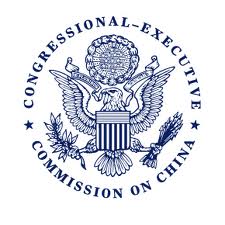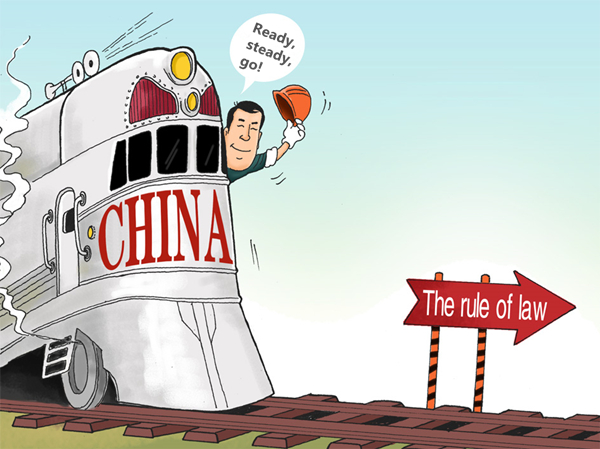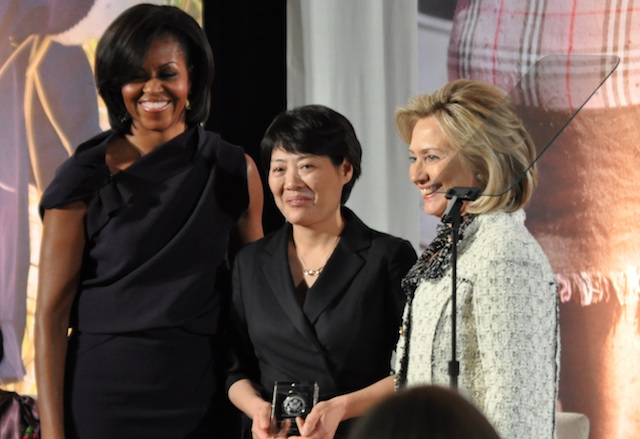China Ready for Market Economy Status? Not According to the CECC
 In its 15 year history, perhaps no other annual report is as consequential as the one the Congressional Executive Commission on China (CECC) released on October 6, 2016 and in the midst of China’s push to be granted Market Economy Status. China believes that with its December anniversary of its World Trade Organization (WTO) entry, it has a legally-mandated right to be granted Market Economy Status, a status that comes with significant trade benefits. But the CECC’s 2016 Annual Report paints a different picture, revealing a Chinese government, under the leadership of Xi Jinping (pronounced See Gin-ping), intent on consolidating the Chinese Communist Party’s (CCP) power at the expense of a rule of law.
In its 15 year history, perhaps no other annual report is as consequential as the one the Congressional Executive Commission on China (CECC) released on October 6, 2016 and in the midst of China’s push to be granted Market Economy Status. China believes that with its December anniversary of its World Trade Organization (WTO) entry, it has a legally-mandated right to be granted Market Economy Status, a status that comes with significant trade benefits. But the CECC’s 2016 Annual Report paints a different picture, revealing a Chinese government, under the leadership of Xi Jinping (pronounced See Gin-ping), intent on consolidating the Chinese Communist Party’s (CCP) power at the expense of a rule of law.
In 2001, Congress created the CECC after the U.S. normalized its trade relations with China. Prior to normalization, Congress reviewed U.S. relations with China every year to determine if most favored nations status should continue to be granted to China. Inevitably, this annual review focused on China’s human rights record and legal development. However, with China’s accession into the WTO, a yearly Congressional

Courtesy of china.org.cn
vote on trade relations with China was no longer possible. As a result, in agreeing to China’s entry into WTO, the CECC was created to monitor China’s human rights, review its legal development, and maintain a political prisoners database. Part of the CECC’s mandate is to issue an annual report concerning these issues
For certain, since the CECC’s creation, China has made great progress in creating a more vibrant and reliable legal system. The 2016 Annual Report highlights some of these positive developments. In 2016, the Chinese government instituted reforms to its household registration system (hukou), a system that has long kept rural residents in a second-class citizen status; it eliminated its one-child policy in favor for a two-child policy; it passed an Anti-Domestic Violence Law that recognizes psychological abuse in addition to physical violence and applies to non-married couples; it passed a Charity Law that could make it easier to create non-profits in China; with reforms to the court acceptance system, Chinese courts have accepted more sensitive cases, including China’s first gay marriage case; and in the past year, the central and local governments have increased funding to legal aid.

Zhongze Women’s Found, Guo Jianmei, given the International Women of Courage Award by Michelle Obama and Hillary Clinton, March 2011. (Photo Courtesy of Roshan Nebhrajani/Medill DC/Flickr)
But as the CECC’s 2016 Report makes clear, this progress is heavily overshadowed by the government’s suppression of anything it deems a threat to its rule. In 2016, China continued its prosecution of civil rights lawyers on charges of “subverting state power” for zealously advocating for their clients on what the CCP determined to be a sensitive issue. Ironically, less than a month after the passage of the Anti-Domestic Violence Law, in January 2016, Beijing police ordered the shutdown of the Beijing Zhongze Women’s Legal Counseling and Service Center, a women’s rights organization instrumental in getting the Anti-Domestic Violence law passed. And while China passed the Charity Law in an effort to encourage the non-profit sector, the passage of the Foreign NGO Management Law in April, seeks to limit the interaction of domestic NGOs with foreign ones, rendering illegal many of the effective relationships that have developed over the past decade and has resulted in an increasingly vibrant civil society in China. In addition to passing the restrictive Foreign NGO Management Law, in 2016, the CCP increased its anti-Western rhetoric, equating those who seek political reform as being pawns of “hostile foreign forces.”

Images of Hong Kong bookseller Gui Minhai “confessing” to his crimes (Photo Courtesy of Hong Kong Free Press)
The CCP continues to censor the internet by blocking its citizens from accessing certain western media websites, including the New York Times, the Wall Street Journal and Bloomberg News. Domestically, it issues pronouncements on how Chinese journalists should be reporting certain news items and detains those who do not follow orders. In 2016, in a throwback to the Cultural Revolution, the CCP increased its use of public confessions, having dissidents admit to their “crimes” on state television. These televised “confessions” included statements by foreign NGO worker Peter Dahlin, lawyer Wang Yu and the abducted Hong Kong booksellers Gui Min Hui, Cheung Chi-ping, Lan Wing-Kei and Lui Bo.

Beware of Foreign Forces (Photo Courtsey of DoD/U.S. Army Staff Sgt. Sean K. Harp/Released)
The CECC’s 2016 Annual Report makes clear that the Chinese government’s retreat on the rule of law front is not happening in a vacuum. Instead, as the 2016 Annual Report notes, the CCP’s efforts come at a time when China is experiencing its slowest growth rate in 25 years. Will that slow growth mean that the CCP will double down? That next year will only see a further retrenchment of the CCP’s Cultural Revolution ideology of public confessions, suppression of dissent and the suspicion of anyone who is in contact with “foreign forces”? All at the expense of the rule of law and the Chinese people? Given this past year’s developments, the answers to these questions seem to point to yes.
 On Facebook
On Facebook By Email
By Email 
I boycott China because dogs are boiled alive, limbs chopped off, no animal welfare laws, dogs and cats eaten, pigs buried alive, dogs dragged behind cars and it’s legal…camels punched for money, tigers punched for selfies, tiger wines , lion bone wine, dogs cooked alive… there’s no end to it I could never stop this list it goes on and on. Why is it okay to hate animals in China?
China will only be ready for Market Economy Status when they implement Human Rights Law, and Anima Cruelty Laws, these two laws are crucial for China’s Government to gain any respect from the rest of the World. They have to give their people freedom to express their own opinions with out being arrested and publicly shamed in national TV. They have to address and listen to the rest of the World and end the Barbaric torture and slaughter of Millions of Cats & Dogs each year. Implement Animal Welfare laws. The list is endless Human Rights & Anmial Rights are top of list